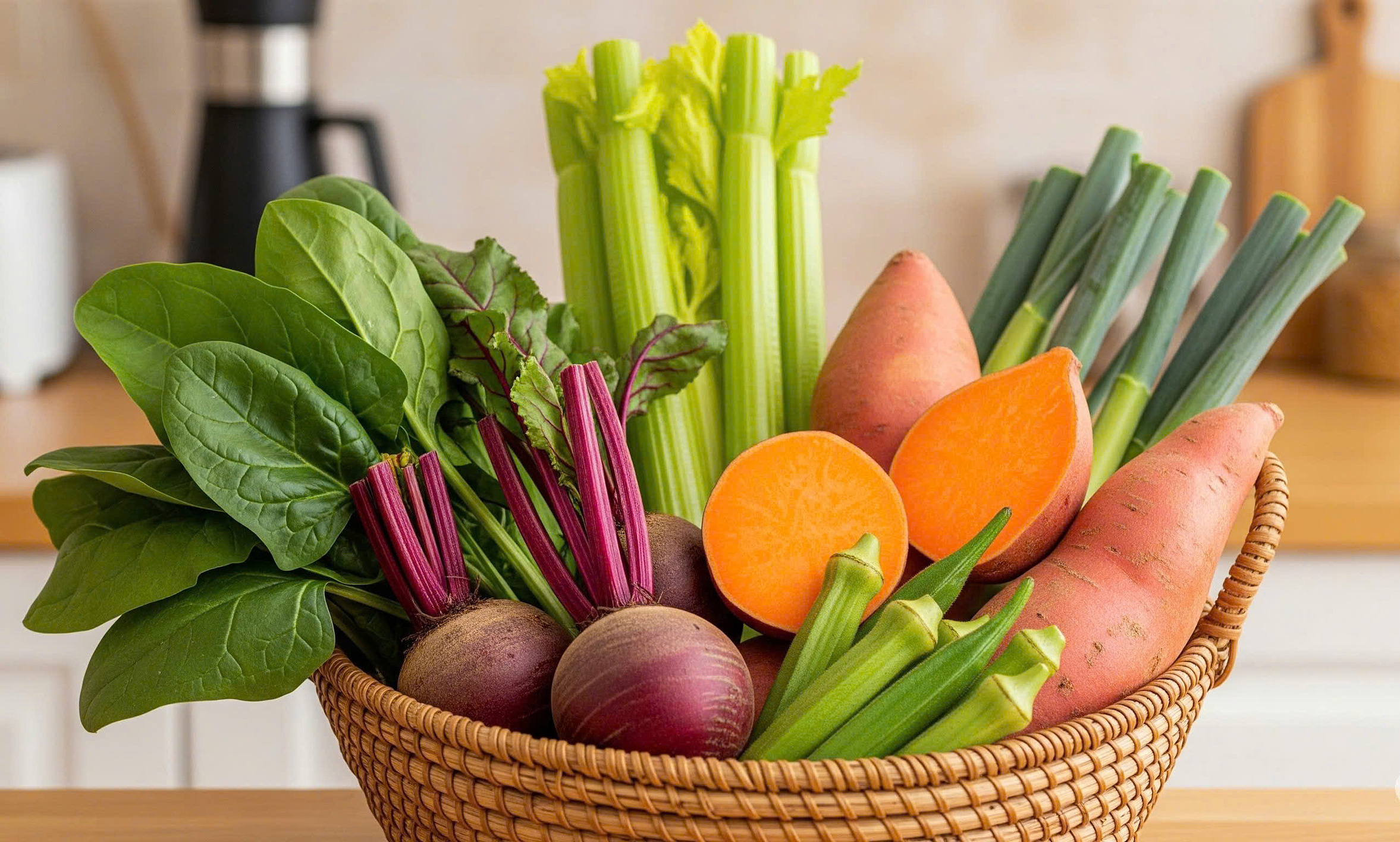Vegetables provide essential fiber, vitamins, and minerals. However, some oxalate-rich varieties can crystallize with calcium to form stones in the urinary tract, most commonly calcium oxalate stones.
Doctor Nguyen Anh Duy Tung from Nutrihome Nutrition Center explains that consuming oxalate-containing foods doesn't automatically cause kidney stones. However, those with a history of kidney stones or at high risk should monitor their oxalate intake to reduce recurrence. They needn't eliminate these vegetables entirely, but should diversify their diet, eat reasonable portions, be mindful of preparation methods to ensure proper nutrition, and drink enough water (2-2.5 liters). Water dilutes the concentration of minerals in urine, thereby limiting stone formation.
 |
Consume oxalate-rich vegetables in moderation to limit the risk of kidney stone formation. Photo: Trong Nghia |
Consume oxalate-rich vegetables in moderation to limit the risk of kidney stone formation. Photo: Trong Nghia
Kidney stone patients should eat vegetables alongside calcium-rich foods like milk, cheese, small fish with bones, or tofu. Consuming them together allows calcium to bind with oxalate in the digestive tract, reducing the amount of oxalate absorbed into the bloodstream and excreting it through stool as an insoluble compound. This, in turn, limits stone formation. Conversely, a diet too low in calcium increases the risk of oxalate stones due to greater oxalate absorption. Besides oxalate, those with kidney stones should reduce salt intake, avoid excessive animal protein, and limit high-dose vitamin C supplements (as excess vitamin C can convert to oxalate).
Individuals at risk of kidney stones should avoid holding their urine, drinking too little water, using supplements from unknown sources, or overusing diuretics. These factors can increase the concentration of minerals in urine, stimulating stone formation.
To prevent kidney stones, Doctor Tung recommends weight management and regular exercise. Those with a history of or current kidney stones should adhere to their doctor's treatment plan. Regular nutritional checkups, body composition analysis using the InBody 770, and micronutrient testing using the UPLC high-performance liquid chromatography machine can determine any nutritional deficiencies or excesses. This allows doctors to advise on appropriate dietary adjustments and vitamin and mineral supplementation tailored to individual health conditions.
Trong Nghia
| Readers can submit nutrition-related questions here for doctor's answers. |












